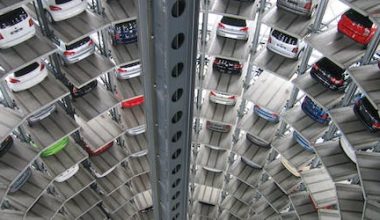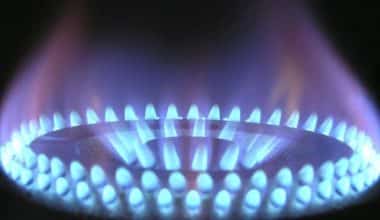The LPG industry in Nigeria and Africa has enormous growth and development potential. By investing in infrastructure, marketing, and distribution methods, entrepreneurs can gain access to this market. The LPG supply business, with the correct tactics and collaborations, may be a profitable and sustainable operation that contributes to the expansion of Nigeria’s energy industry. We will effectively explore how to run an LPG business in Nigeria in this article.
What is Liquefied Petroleum Gas (LPG)?
Liquefied Petroleum Gas (LPG), often known as propane or butane, is a liquefied hydrocarbon gas that liquefies at low pressure. It is a colorless and odorless gas that is extensively used as a fuel for heating, cooking, and transportation. LPG is made up of propane, butane, or a combination of the two and is stored and delivered in a liquefied state.
What is the Liquefied Petroleum Gas (LPG) Business in Nigeria About?
Liquefied Petroleum Gas (LPG) manufacturing, distribution, and sale of LPG, a clean-burning, efficient, and safe fuel used in cooking, heating, and industrial activities. LPG is created by refining crude oil and processing natural gas. LPG is a byproduct of the oil and gas industry with the scientific name propane-butane mixture.
Starting an LPG supply business necessitates market research in order to find new consumers and understand their LPG consumption. This involves determining their desired location, volume requirements, and mode of distribution. After the research is completed, the manufacturing procedure can begin. The yield of LPG production varies according to the source, extraction method, and refining process.
Following manufacturing, LPG distribution necessitates meticulous planning to ensure safe transit, storage, and handling. LPG supply companies can distribute their products through a variety of channels, including cylinder refilling stations, bulk storage facilities, and direct sales to industrial customers.
LPG consumption in Nigeria and Africa is likely to rise as the countries continue to transition to greener energy sources. With so many natural gas deposits in the region, the potential for the LPG supply company is enormous. However, in order for the firm to prosper, legislative limits, infrastructure limitations, and safety concerns must be solved.
Benefits of the Liquefied Petroleum Gas (LPG) Business in Nigeria
Some of the advantages of launching this business include:
Cost-effective: Because LPG is a low-cost fuel, it is an inexpensive solution for both households and businesses.
Environmentally friendly: Because LPG is a clean-burning fuel that emits less emissions than other fossil fuels, it is a good choice for the environment.
Reliable: LPG is a dependable source of energy, and its supply is generally more steady than other kinds of energy such as electricity.
Efficient: LPG is an efficient fuel with a high energy density, which means it can generate more heat with less fuel.
Versatile: LPG is versatile since it may be used for a multitude of purposes, including heating, cooking, and powering vehicles.
Safe: When handled and used correctly, LPG is a safe fuel, with safety safeguards in place to prevent mishaps.
Reduced reliance on nonrenewable resources: LPG provides a cleaner alternative to other fossil fuels, lessening our reliance on these nonrenewable resources.
Job creation: The LPG supply company employs individuals along the supply chain, from production to distribution and sales.
Income generation: The LPG supply business can be a profitable operation that generates income for both business owners and employees.
Rural development: LPG can be a vital resource for rural communities, offering an economical and dependable source of energy.
Factors to Consider Before Starting a LPG Business
Meanwhile, before you begin your business, you need be aware of key elements that will help you deal successfully. Among these elements are:
#1. Startup Funding
Before beginning an LPG business, one must evaluate the startup cash required. According to experts (current business owners), with a capital of $300,000, you can easily establish one and be able to buy more than 20 cylinders, rent a shop, and purchase the initial supplies. The location, on the other hand, impacts the cost of the shop. A location in a highbrow area will cost you more money than a place in a lowbrow area, but the investment will be well worth it.
#2. Training
It is critical to spend at least six months with an established retailer or depot to learn the fundamentals of the LPG industry. You must learn how to refill the cylinder, transfer, and change the valve. And everything else you need to know about the business. You must also understand where and how to purchase cylinders.
If you want to study smartly, you can learn from any of those roadside vendors, and if you’re smart enough, you can gain all the knowledge you need there. In any case, your apprenticeship could take up to six months to complete.
#3. Rent a Store
After training is done and the necessary knowledge is obtained, the next step is to locate a shop. People who use cylinder gas cookers are more likely to live in cities. Almost every neighborhood in Lagos is ideal for business, but some are better than others.
#4. Marketing
It is critical to have an effective marketing plan to raise public awareness of your company while also increasing profitability and staying afloat. A company that refuses to engage in marketing techniques is doomed to fail and will go out of business quickly. It is beneficial to establish positive customer relationships and demonstrate empathy for their needs.
Know your customers and figure out how to best deal with each one. It’s not just about making sales (one-time sales), but also about assuring “repeat purchases,” when buyers return after the first transaction and continue to buy from you. This is what ensures a business’s continued existence in perpetuity (everything else being equal).
#5. Pricing
Offer the most affordable prices possible. Do not operate at a loss or with a big profit margin. Consumers want to save as much as possible and would buy from a store with lower pricing. Customers will flee if your prices are too high. Don’t be too eager to profit.
#6. Competition
After the company is up and running, it is critical to keep an eye on your competition. Examine their moves and devise a strategy to outperform them.
How To Run the Liquefied Petroleum Gas (LPG) Business in Nigeria
Starting a Liquefied Petroleum Gas (LPG) business in Nigeria necessitates careful preparation and adherence to all applicable rules. The steps below will help you run an LPG business:
- Conduct a feasibility study: Conduct a feasibility analysis by researching the market, competitors, suppliers, regulations, and startup costs.
- Register your business: Register your company with the appropriate authorities, such as the Corporate Affairs Commission (CAC) and the Department of Petroleum Resources (DPR).
- Obtain all essential licenses and permits: Obtain all necessary licenses and permits to run the business, such as a DPR permit, a Fire Service permit, and an Environmental Impact Assessment (EIA).
- Funding sources: Obtain appropriate funding for starting capital and operational needs.
- Purchase a storage facility: Construct or lease a storage facility that meets the necessary safety and environmental criteria.
- Source suppliers: Develop a working relationship with dependable LPG suppliers.
- Market your company: Create marketing techniques to promote your company to potential clients.
- Hire staff: Recruit personnel with suitable skills and abilities.
- Implement safety procedures: To secure the safety of your employees and customers, train your employees and adopt safety procedures.
Starting an LPG business in Nigeria can be difficult, but with the right attitude, it can be a profitable endeavor. It is critical to follow regulations and maintain safety standards throughout the business operation.
Government Policies and Incentives on LPG Business
The Federal Government of Nigeria recently announced its desire to introduce up to 10 million gas cylinders into the market in order to increase safety and expand the use of cooking gas. The first phase of cylinder injection will begin in 11 pilot states and the FCT, with two states from each geographical zone. Lagos, Ogun, Bauchi, Gombe, Katsina, Sokoto, Delta, Bayelsa, Ebonyi, Enugu, Niger, and the Federal Capital Territory are among the states. The marketers will be used to inject the cylinders. The marketers will be in charge of the cylinders, and the exchange will take place in people’s homes rather than at gas stations.
As a result, individuals will no longer own cylinders in the future; instead, cylinders will be owned by marketers who will ensure that they are safe for use. This will improve the safety of both gas users and society as a whole. As a result, savvy entrepreneurs have an opportunity to enter the LPG company as marketers.
The government intends not only to boost household LPG consumption, but also to enhance LPG usage in agriculture, transportation, and manufacturing, allowing the country to reduce CO2 emissions by around 20% while creating millions of employment for Nigerians.
In collaboration with marketers, the government aimed to convert 45% of the state’s approximately 4 million automobiles to autogas during a four-year period. Various levels of government are investigating cleaner energy sources for cooking, transportation, and electricity generation.
The Federal Government is attempting to establish micro gas distribution systems in all of the country’s local government regions.
Risks in LPG Business
Every firm faces unique challenges, and the most serious danger in the cooking gas industry is fire explosion, which is extremely common due to the highly flammable nature of liquefied natural gas. That isn’t much of a problem, though, because it is readily managed or avoided.
To prevent this, you must remain vigilant at all times to detect leakage in those cylinders, as leakage is one of the leading causes of fire and explosion. You should also purchase a reliable fire extinguisher, which will come in handy in the event of a little fire.
Another business risk is the purchasing of subpar products and equipment. Accidents will occur if the store is not properly set up, posing a risk to the environment and individuals nearby. As a result, it is critical that no stone is left unturned when it comes to establishing a store that is up to par and does not threaten the lives of others. In reality, as is well known with gas explosions, the resulting accidents or explosions can result in significant financial and property loss.
Why One Should Not Be Scared to Owning an LPG Business
Pressure vessels (including LPG tanks) are constructed and manufactured to withstand the elements of nature (rain, sunshine, etc.). People are frequently discouraged from owning and operating LPG skid plants, owing to the gas’s explosive potential, which may be seen as a hazard to lives and property. However, there are compelling and verified reasons why you should not be deterred from owning and operating an LPG skid plant in any area of your choosing.
#1. Before an LPG skid plant can be constructed and sited in a certain area,
The Department of Petroleum Resources (DPR) must conduct an Environmental Impact Assessment (EIA) in accordance with worldwide best practices, followed by a calibration test, pressure test, and facility integrity test to determine the LPG infrastructure’s safety compliance limit. When all of the relevant standards are met, a DPR certificate is issued.
#2. A Pressure Relief Valve (PRV) on an LPG skid plant serves as a vent for built-up pressure.
Under high external temperatures (such as those caused by a nearby fire), the Pressure Relief Valve (PRV) quickly releases excess pressure to prevent the vessel (tank or cylinder) from rupturing.
#3. The wall thickness of an LPG skid plant is around 15cm.
This acts as a fire and pressure resistance, keeping the vessel (tank and cylinder) from rupturing in the event of a large and prolonged fire.
#4. An LPG skid plant is filled to around 85% capacity in accordance with international best practices.
This is done to allow for the thermal expansion of the enclosed gas as the surrounding temperature rises.
Given the foregoing, investing in the expanding LPG business is the most prudent option someone can make, especially given that the LPG market in Nigeria is worth over #37 billion per year, with a 50% return on investment.
How Profitable is Cooking Gas Business in Nigeria?
Take the 12.5kg cylinder as an example; the average profit on a 12.5kg cylinder of cooking gas is N1,000. You acquire for N7,500 or less per unit and sell for N8,500 or more. If you sell 30 cylinders per day at a profit margin of N1,000, you will make N30,000 per day. You will earn N30,0030 = N900,000 in a month.
If you are in a highbrow neighborhood with decent clientele, this is the lowest profit you may make in the cooking gas business. Most folks earn significantly more than what we computed here. As a result, it is not exaggerated in any manner. Gas companies, both suppliers and merchants, are profitable in the industry. You can become one of them right now if you act quickly!
How Can I Be Successful in LPG Business?
To promote your LPG gas agency and attract new clients, use numerous marketing methods such as social media, print adverts, and word-of-mouth. Provide good customer service: It is critical for the success of your LPG gas business to provide excellent customer service.
How Much Does it Cost to Set up LPG Gas Plant in Nigeria?
Let us examine this together. A 10-tonne cooking gas plant, for example, can cost between N40 million and N100 million to fully establish, including all regulatory documentation, land purchase, building construction, operation costs, and gas plant equipment.
Why is LPG so Expensive in Nigeria?
The key components of the cost differential when compared to locally supplied LPG are freight costs, clearing fees, and FX rates. When imported LPG accounts for more than half of supply, LPG prices in Nigeria must be benchmarked against it.
How Big is the LPG Market in Nigeria?
The federal government has revealed that Nigeria’s Liquefied Petroleum Gas (LPG) market, also known as cooking gas, has grown significantly over the years, with a market value of N100 billion now surpassing the initial N10 billion estimate some years ago.
Conclusion
The supply of Liquefied Petroleum Gas (LPG) presents a significant opportunity for Nigerian and African entrepreneurs and investors. With rising demand for cleaner and more efficient energy sources, the regional LPG market is expected to expand.
- GA INCOME TAX: Definition, Form, Rates, and Brackets
- How to Start Cooking Gas Business in Nigerian
- Oil Industry: Sectors & Jobs.
- How to Start a Gas Station Business in Nigeria (2023)






